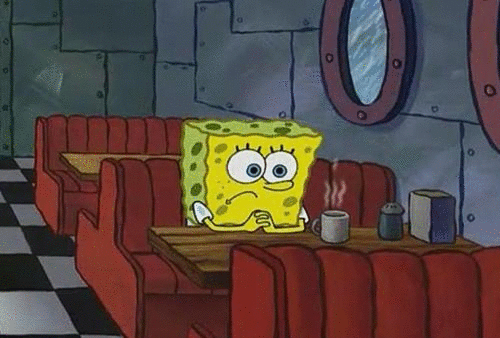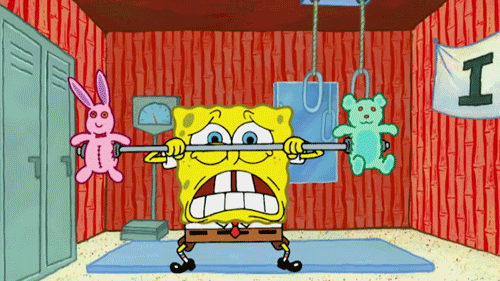

Table Of Contents
(Yes - despite a prolonged war within myself I caved and wrote an obligatory developer productivity post. I promise I’m still different and not like the other bloggers though!)
Sought After Treasure
Being productive is something we all generally strive to do. Unless you have internalized the ways of Zen Buddhism and carry them out in every avenue of life being unproductive is probably a state you try to avoid.
Productivity feels good. It makes us feel capable and in control. We want to do a thing, we wind up doing the thing, and then our brain is happy because it knows we can do things now. We love the relief we get at the end of the tunnel after we’ve sat down and grinded out something we’re proud of.
One could say it’s the quintessential high modern man is after.
Productivity for the developer
As developers we have all sorts of tricks and tools for staying productive. Scrum/Kanban boards, IDEs, source control, auto-completion and linting tools, the list goes on and on. These things are important. I’d even suggest these are ground floor requirements for being a reasonably efficient developer.
But there’s another component of productivity - the component outside of the computer. This component is much more important than any hardware or software in a computer. And it’s far more variable and chaotic. It can’t be powered on for 24 hours a day unless you give it certain substances that we won’t mention here. It’s quite slow sometimes, and fleshy, and often needs to go to the bathroom which is annoying. And worst of all it has too many responsibilities and is incapable of parallel processing but it always tries and never seems to learn.
The Fatal Flaw
Let’s cut to the chase: I’m talking about us. Our squishy, fleshy, needy, single-threaded selves.
We are often the biggest hurdle to productivity in our lives. And I’m going to teach you how to fix yourself, destroy your emotions, and become a terminator-like productivity god that demolishes all obstacles in your path.
Just kidding. What I’m going to offer here is some wisdom from a group of people who know best how to reprogram their own behavior: recovering addicts.
Learn From Failure
Being unproductive is fundamentally a behavioral problem. In today’s world it has a lot to do with the addictive nature of the distractions that plague us.
When you think of a group of people who know best how to enhance your productivity as a developer you likely don’t think of the people attending Narcotics Anonymous.
You might even think taking advice from people who have destroyed their lives with addiction is not a wise choice. I’m here to challenge that belief and submit to you the following: People who have successfully kicked crystal meth probably know a few things on how to nix bad habits.
Over the holidays I spent some time around addicts at an NA meeting to celebrate my sister’s three year sobriety date. We spent that time connecting and finding common ground with the vices we all struggle against.
Addicts learn a lot of helpful frameworks for structuring their behavior to avoid relapse. Unsurprisingly, these frameworks are applicable to stopping many of the habits you dislike. And what is unproductive time comprised of? Habits that we wish to stop; YouTube, Instagram, LinkedIn, checking the news, etc.
I’ll be talking about two concepts in this article that we can use to try and reduce our distractability: intentionality and HALT.
Primordial Wiring
“An idle mind is the devil’s playground.”
One of the greatest lessons an addict will learn is that without intention, without structure, the mind will eventually unravel into chaos. Your brain is programmed to seek out gratification - and without intention, it will default to seeking the most instant form of gratification available to you. Like a rat in a maze with cheese in the middle, your brain will overtime learn to select the shortest path to a reward.
As a developer this looks very much like the following:
You’re working on some feature ticket. Maybe you hit a good stride and complete a portion of the ticket faster than expected. You know you have some leeway now in how you spend your time.
You dissociate from your work momentarily and suddenly feel a pull to see what’s new on YouTube. Before you know it you’ve spent 20 minutes watching blacksmith videos, your brain feels a little foggy, and switching back to development work seems even less appealing than it did 20 minutes ago.
At this point you’re caught in the web! (Har har I’m sorry)
Everyone has experienced it. This eb and flow is a constant battle and it isn’t a trivial one. It really can affect not only your productivity but consequently your work satisfaction and therefore your well being. Oddly enough up to a certain point work productivity and well being seem to have a positive linear relationship.
The more productive you are at work the better your well being and vice versa.
Healthy Productivity
We all know what it looks like to get our work done but still entertain some distraction throughout the day. What level of distraction we are willing to accept is up to the individual and their own needs.
If distraction is becoming an issue for you or you want to experiment with new habits here are the practices I’ve implemented after spending time around addicts. I’ve seen immense improvements to stress levels and productivity after doing these.
Intentionality
Truth is how productive we are during the workday can be influenced largely by how intentionally we approach each chunk of time in the day. We are either experiencing passive or active consciousness.
Building an awareness of when you’re in auto-pilot vs when you have some clear goal (even if that goal is to rest and relax) is a huge step in managing distractability.
One chunk of time that may be the most important is the morning. How you start your day can wind up setting the tone for the rest of it.
- Are you someone who wakes up 5 minutes before you start work?
- Do you have a sense of what needs to get done before you log on?
- Do you have some expectations of what the day will be like?
Here’s an idea. Let’s say we have two people.
One person wakes up 5 minutes before they start work. They have just enough time to make some coffee before they sit down, dazed from sleep, at their computer. They scroll through their product backlog or teams messages while wiping the grogginess from their eyes.
Another person wakes up 30-60 minutes before starting work. They have a small breakfast or some coffee. After about 15 minutes their brain is up and running and they’re already thinking about what they’ll be working on today and their priorities. They hit the desk running, so to speak, with a clear view of what they’ll be doing before they even fire up the computer.
How do you envision the workday going for each of these people?
Is there any difference and if so - what does this difference look like over the course of years? What does it look like to approach not just the morning with that sort of intentionality, but the entire work day?
You may find throughout the day that you complete a task and are left mentally wandering. A soul with no purpose.

This is the time when people tend to jump to distraction because context switching can be unpleasant. If you were just coding your brain is in coding mode and it can take some effort to swap to digging-through-backlog mode.
It’s in this time I recommend practicing awareness. Your brain is either in one of two states at this point: You either have the capacity to context switch and figure out what to do next, or your brain is saying “Hey man, this work stuff is really cool and all but wouldn’t it be even cooler if we ate Cheetos and watched YouTube for 12 hours instead?”
If your brain is waving a white flag that’s useful information and it may be a sign that you need to HALT (which we’ll touch on in the next section) but the bottom line is that being at your computer right now isn’t particularly productive and in fact could be unnecessarily stressful.
This is a great time to take an intentional break so that you can come back clear minded, relaxed, and with better direction on how to proceed.
Building awareness that you are beginning to hand the reigns over to your subconscious is a fundamental first step in identifying when you’re entering distractability, and with some gentle intentionality and redirection you can stop this process before you wind up browsing Twitter.
HALT - Burnout Awareness
HALT is a concept you’ll find mentioned in many 12 step groups. It’s an acronym for four common states or triggers that cause addicts to relapse: Hunger, Anger, Loneliness, and Tired.
In a working context these triggers can cause productivity to plummet and increase burnout risk - and when developers are burnt out we either have a mental breakdown or we watch YouTube. It is disturbing in some sense to see the parallels between substance addiction and internet use, particularly when you consider that many tech companies specifically design their products to be addictive (clever bastards) but that’s a bit of a dead horse topic albeit quite relevant to this post.
Only Human..
The bottom line is that you are first and foremost a person, not a machine. I agree it’s a bummer.
If your underlying needs go crucially unmet your output is probably going to suck. Being hungry is quite distracting and stressful. When you are distracted and stressed you are more likely to be thinking about bagels than you are about how to reverse a binary tree (not that you’d ever do that in a real job anyways, as we all know).
You need to take care of your noggin’ like it’s a high performance athlete if you want to get high levels of performance out of it.

Deep Work
Development work is what we might call “deep work”. It can require significant amounts of performance; namely focus and problem solving. And because of that it tends to attract people who find that experience enjoyable. These people also sometimes like coffee. And when you take people who enjoy deep work, caffeine, and hand them money to combine the two of them, they can get a little carried away.
We all know the experience of hitting a state of flow and realizing we should’ve taken lunch two hours ago. It’s perfectly normal to get caught up in work, lose track of time, and realize that your bladder is 2 seconds away from exploding and the only food you’ve had in the last 5 hours was a single saltine cracker.
This experience may seem productive. And sometimes it is - but it’s very much like weight training. You can blast your body once a week with a 12 hour goliath of a training session pushing so hard you regret ever being born, or you can split that intensity across 6 days that week and make sustainable progress towards your goal of having a very muscular body to accompany your very muscular brain.

The same is true of software development. You can snort ground up coffee beans and work yourself to death for 6 hours straight with no breaks, hell you might even wind up producing some seriously quality stuff during this time.
But the trade off is that you may find you aren’t meeting a lot of your needs a lot of the time. Hungry turns to hangry, which turns to.. I’m not sure how to combine hangry and tired, but eventually you’ll probably get tired too, and all of these states add up and will hurt your ability to work.
Chronically abusing yourself with overwork can have some serious consequences. Often it’s counterproductive because you become a procrastinator to cope with the abuse anyways - leading to you outputting roughly the same as the dude on your team who’s taking it easy while you’re on the verge of cardiac arrest from stress.
TLDR
Stopping or reducing unproductive behaviors during the work day is possible. We can take what recovering addicts have learned in stopping their undesirable habits (and trust me, their habits are often much more addictive than Facebook) and apply it to our own.
Much of this process is internal. It requires building conscious awareness of your states throughout the day, ensuring your needs are met, and that you have a clear and structured goal to work towards.
When you take care of your needs consistently you set yourself up for long term sustainable output. There is no need to associate work with pain. Doing so will tend to create aversion to the work over time and further hurt your productivity.
If you take steps to be more intentional about your day and build awareness of your needs you’re on a fantastic path to getting the most productivity out of yourself and experiencing a better quality of life along the way.
Good luck!


